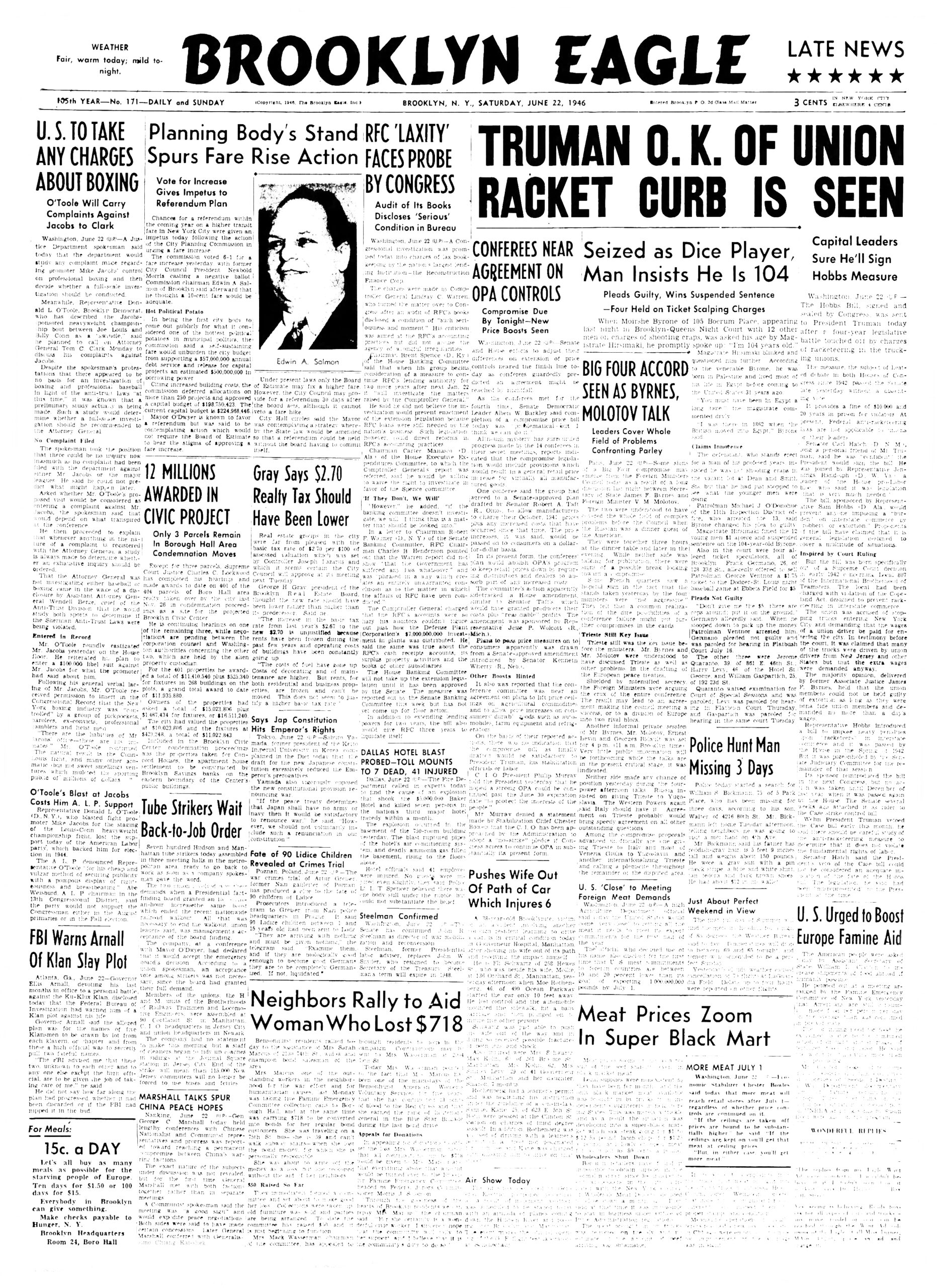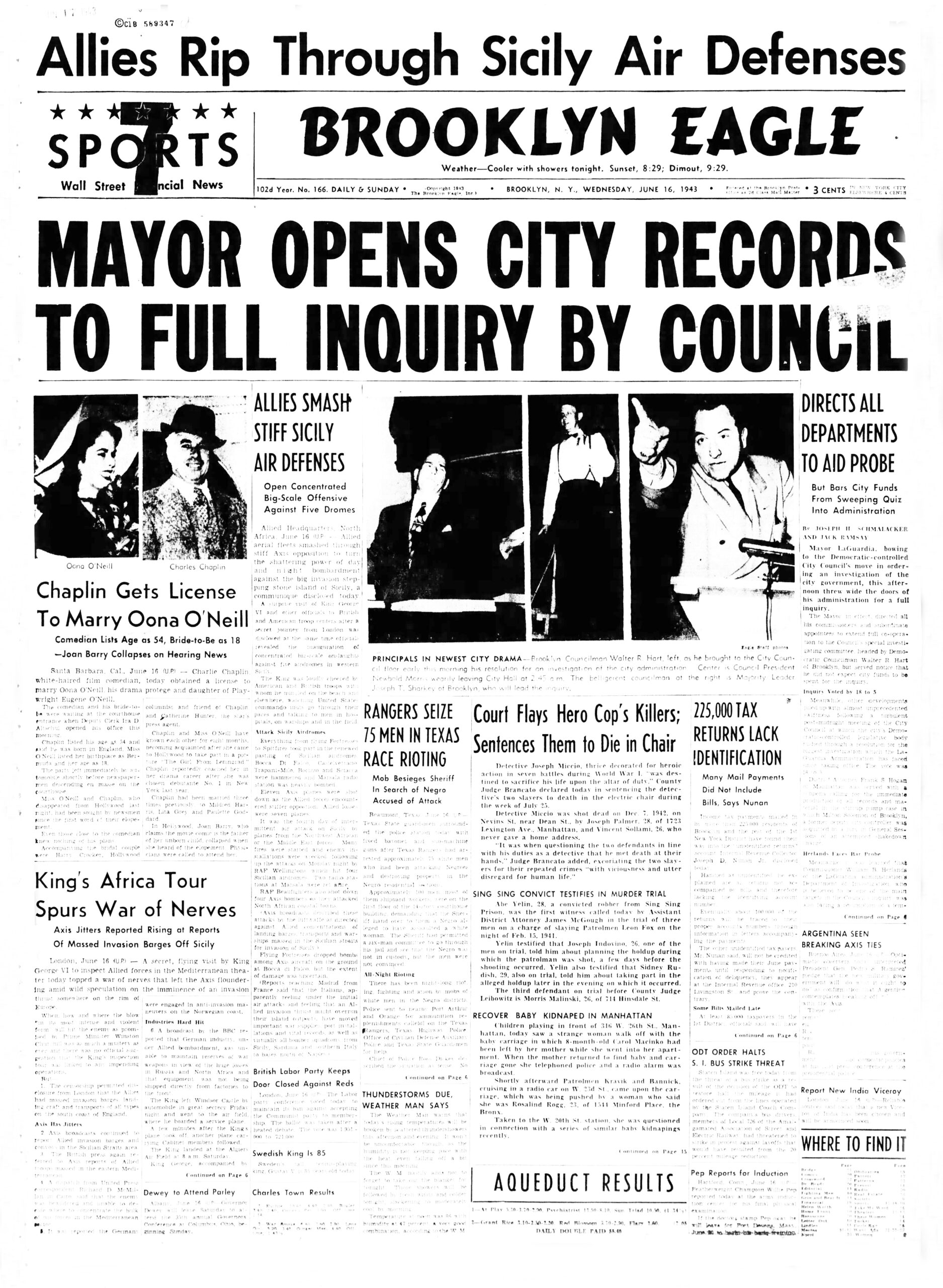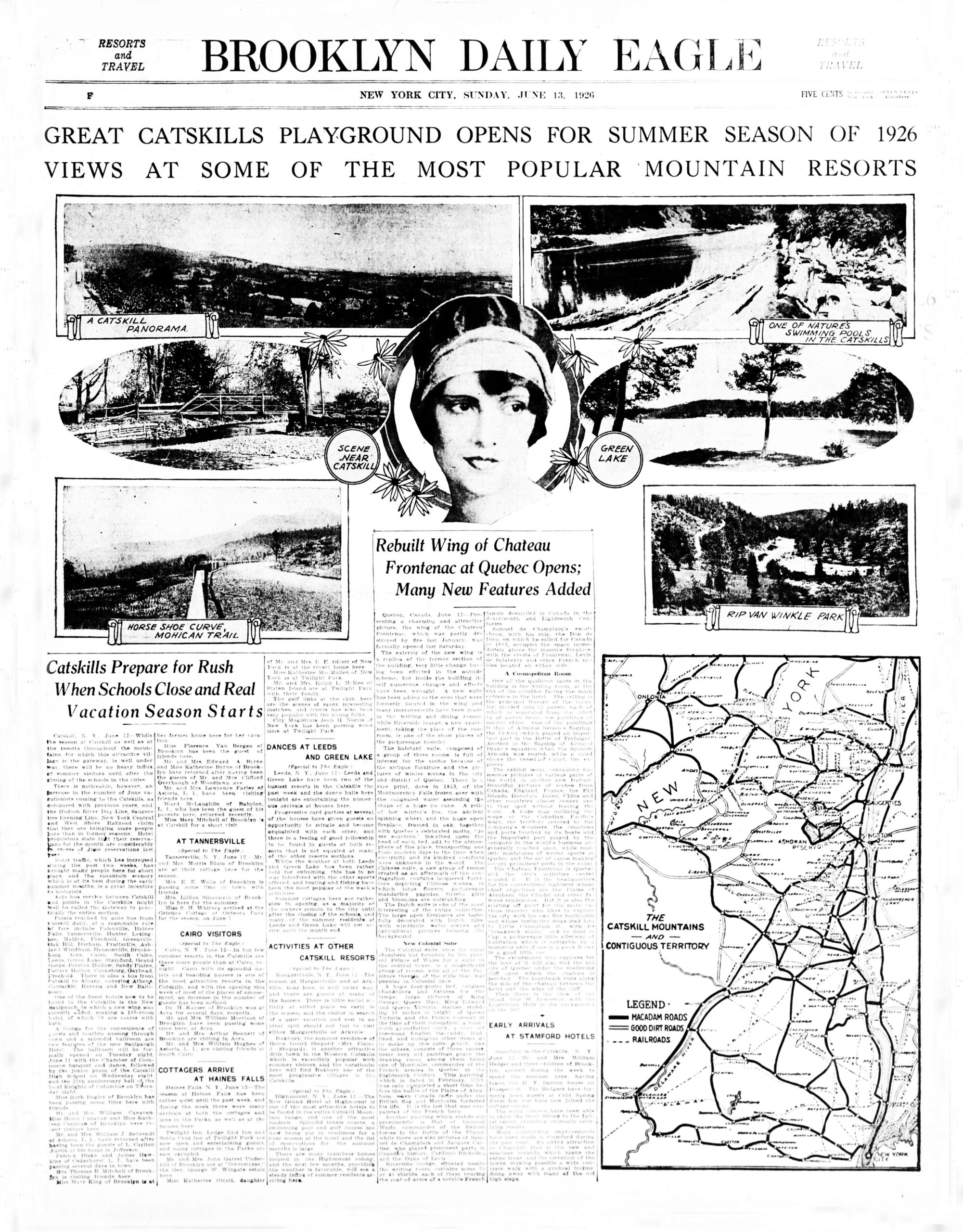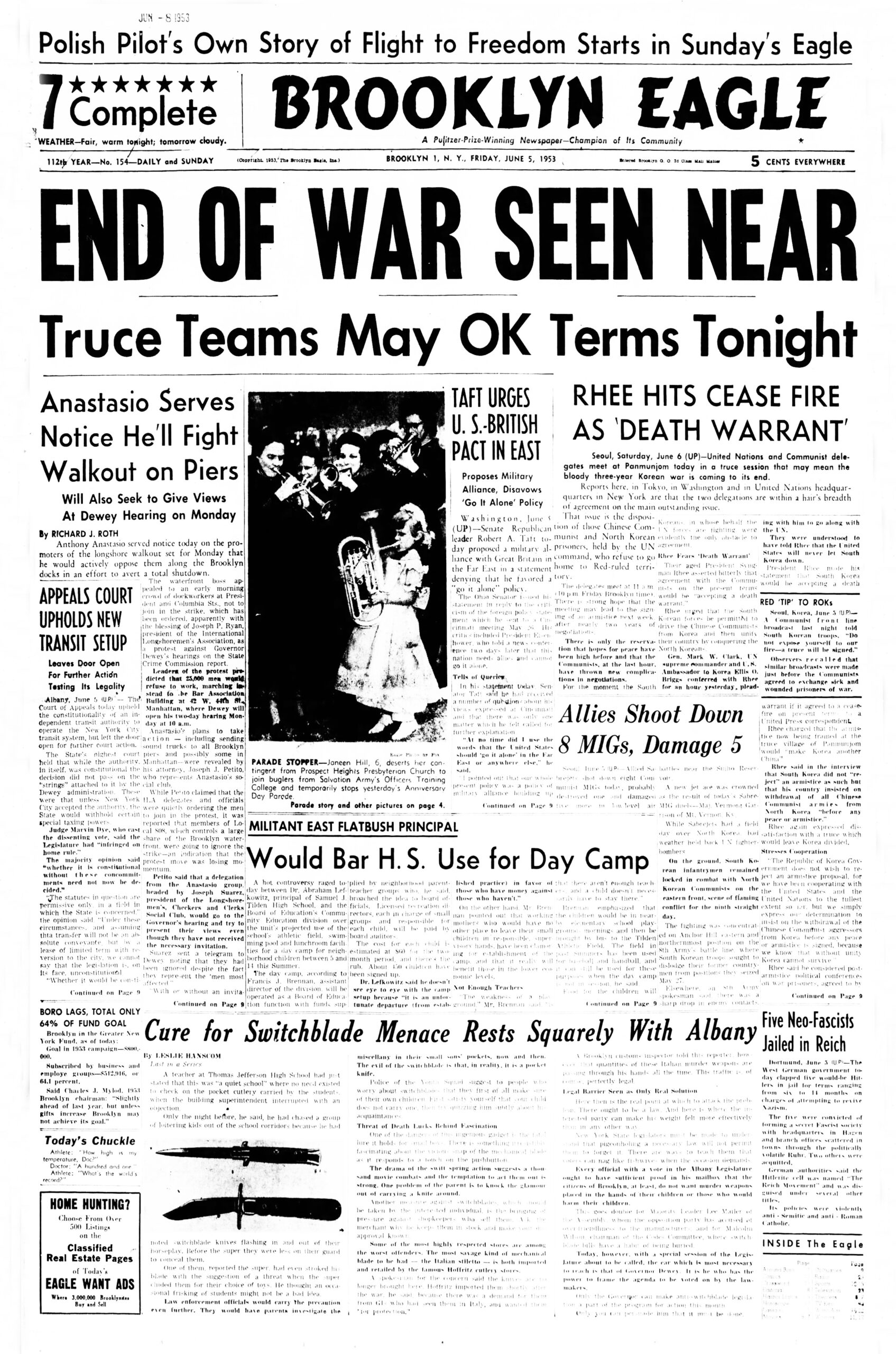#historical-events
#historical-events
[ follow ]
#notable-birthdays #civil-rights #world-war-ii #birthdays #space-exploration #us-history #on-this-day
History
fromwww.mercurynews.com
2 weeks agoToday in History: January 18, White Chicago police officer sentenced in Laquan McDonald's shooting
Jan. 18 marks varied historical events including exploration milestones, legal and civil-rights moments, scientific discoveries, and cultural and political milestones.
History
fromwww.mercurynews.com
3 weeks agoToday in History: January 10, Staten Island workers killed in natural gas explosion
January 10 features diverse historical events: deadly 2013 Pakistan bombings, Paine's Common Sense, the London Underground opening, international institutions, and notable births.
History
fromwww.mercurynews.com
1 month agoToday in History: January 2, Yorkshire Ripper' captured in England
Jan. 2 has marked notable historical events spanning crime, political appointments, wartime captures, space milestones, disasters, policy changes, occupations, medical emergencies, and institutional resignations.
fromwww.mercurynews.com
2 months agoToday in History: November 6, Abraham Lincoln wins presidency
On Nov. 6, 1860, former Illinois congressman Abraham Lincoln of the Republican Party was elected president of the United States as he defeated John Breckinridge, John Bell and Stephen Douglas. Also on this date: In 1861, an unopposed Jefferson Davis was elected to a six-year term as president of the Confederate States of America, after serving much of the year as its provisional president.
US politics
fromwww.mercurynews.com
3 months agoToday in History: November 5, Susan B. Anthony defies law and casts vote for president
On Nov. 5, 1872, suffragist Susan B. Anthony defied the law by casting a vote in the presidential election; she was later arrested and charged with knowingly voting without having a lawful right to vote. Found guilty at trial, she was fined $100, which she refused to pay. Also on this date: In 1605, the Gunpowder Plot failed as Guy Fawkes was seized before he could blow up the English Parliament; Fawkes and his co-conspirators were later convicted of treason and hanged.
History
fromwww.mercurynews.com
3 months agoToday in History: October 31, First African-American plays in an NBA game
On Oct. 31, 1950, Earl Lloyd of the Washington Capitols became the first African-American to play in an NBA game; Lloyd would go on to play for nine seasons, winning an NBA championship in 1955 with the Syracuse Nationals. Also on this date: In 1864, President Abraham Lincoln signed a proclamation making Nevada the 36th state, eight days before the presidential election.
History
fromwww.mercurynews.com
3 months agoToday in History: October 23, Apple iPod debuts
On Oct. 23, 2001, Apple released the iPod. An estimated 450 million iPod devices were sold before the line was discontinued in 2022. Also on this date: In 1915, an estimated 25,000 women marched on Fifth Avenue in New York City in support of women's suffrage. In 1942, during World War II, Britain launched a major offensive against Axis forces at El Alamein (el ah-lah-MAYN') in Egypt, resulting in an Allied forces victory.
Apple
fromUPI
3 months agoOn This Day, Oct. 23: Thousands march for women's suffrage in NYC - UPI.com
In 1707, the British Parliament met for the first time after the Treaty of Union dissolved both the Parliaments of England and Scotland and created a new Kingdom of Great Britain. The Parliament of Great Britain eventually became the Parliament of the United Kingdom. In 1915, an estimated 25,000 women marched in New York City demanding the right to vote throughout the United States.
World news
fromwww.mercurynews.com
3 months agoToday in History: October 17, Albert Einstein comes to America as a refugee
Today is Friday, Oct. 17, the 290th day of 2025. There are 75 days left in the year. Today in history: On Oct. 17,1933, Albert Einstein arrived in the United States as a refugee from Nazi Germany. Also on this date: In 1777, British forces under Gen. John Burgoyne surrendered to American troops in Saratoga, New York, in a turning point of the Revolutionary War.
History
History
fromwww.mercurynews.com
3 months agoToday in History: October 8, Pakistan-India border earthquake kills tens of thousands
October 8 marks historical events ranging from major disasters and scientific milestones to political crises, wartime disruptions, and notable entertainment and civic birthdays.
History
fromwww.mercurynews.com
4 months agoToday in History: September 19, Greg Louganis hits head on diving board
Sept. 19 marks diverse historical events spanning sports triumphs, political transitions, disasters, nuclear testing, major publications, leadership changes, and economic crisis responses.
fromwww.mercurynews.com
4 months agoToday in History: September 18, FBI captures Patricia Hearst
On Sept. 18, 1975, newspaper heiress Patricia Hearst was captured by the FBI in San Francisco, 19 months after being kidnapped by the Symbionese Liberation Army. Also on this date: In 1793, President George Washington laid the cornerstone of the U.S. Capitol. In 1850, Congress passed the Fugitive Slave Act, which created a force of federal commissioners charged with returning escaped slaves to their owners. The act was repealed in 1864 during the American Civil War.
History
History
fromwww.mercurynews.com
5 months agoToday in History: August 20, first women invited to join Augusta National golf club
August 20 marks diverse historical events: Augusta National’s first female members, Darwin’s publication, Civil War’s end, origins of the NFL, major disasters and political events.
fromBrooklyn Eagle
6 months agoJuly 9: ON THIS DAY IN HISTORY
William Jennings Bryan believes that John T. Scopes, defendant in the evolution trial, 'is doing more harm to the teachers of the country than to any other class.' This harm, he declared today, would be 'indefinitely increased if his (Scopes') views as to the independence of the teacher were established.' Bryan expressed the belief that the welfare of teachers is best preserved under the 'present system.' Under this system, he said, personal views of the teachers are left free, and the control of what is to be taught is left to those who employ the teachers.
Brooklyn
Food & drink
fromwww.mercurynews.com
7 months agoSouth Bay tea services are steeped in tradition
Tea rituals vary significantly from the elaborate Japanese ceremonies to the more casual experiences in Silicon Valley.
The Tasting House showcases an exceptional high tea that blends traditional practice with modern sophistication.
NYC LGBT
fromwww.mercurynews.com
7 months agoToday in History: June 12, 49 people killed in Pulse nightclub shooting
June 12 marks significant historical events, including tragedies and milestones in civil rights.
The Pulse nightclub shooting is remembered as a grave act of violence against the LGBTQ+ community.
Brooklyn
fromBrooklyn Eagle
7 months agoJune 10: ON THIS DAY IN HISTORY
Mayor McClellan initiated Flag Day observance in Brooklyn alongside schools' importance of respect for the flag.
Atlantic City prepares for vacationers, tackling highway traffic problems.
Representative Celler to speak at Father's Day celebration, joining notable officials.
NYC music
fromwww.mercurynews.com
8 months agoToday in History: June 4, the Tiananmen Square Massacre
Tiananmen Square protests were violently crushed by Chinese troops in 1989.
The U.S. declared war for the first time against Britain in 1812.
The 19th Amendment was approved by Congress, advancing women's voting rights.
The Dunkirk evacuation demonstrated significant military strategy during WWII.
NYC music
fromBrooklyn Eagle
8 months agoJune 1: ON THIS DAY IN HISTORY
Fishing season begun in Canarsie in 1867, with various fish available and rental boats.
The U.S. Treasury's handling of one-cent coins raised public disdain in 1867.
In 1905, a man was incarcerated in Mineola for mental disturbance related to betting.
President Wilson was seen attending theater in Paris in 1919.
[ Load more ]






























